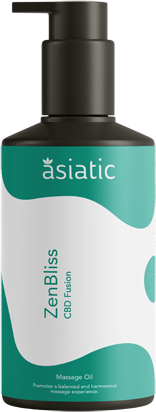
Revitalise your body: The depths of deep tissue massage.
Embark on a transformational journey with Deep Tissue Massage for radiant wellness and inner harmony.

Relax and unwind in tranquility with our deep massage sessions. Opt for ZenBliss CBD Oil (+£5) to enhance your experience and leave feeling rejuvenated and empowered.

The Benefits of Deep Tissue Massage
FAQs
More info on Deep Tissue massage.
Deep tissue therapy is a massage technique that targets the manipulation of deeper muscle layers and fascia to alleviate chronic musculoskeletal issues. This modality is particularly beneficial for addressing persistent pain and tension in regions like the neck, lower back, and shoulders.
Deep massage therapy is a beneficial treatment modality for individuals experiencing chronic pain, engaging in intense physical exertion, or recovering from physical injuries. This type of therapy targets deep layers of muscle and fascia to alleviate tension, reduce stress, and promote overall relaxation. It can enhance range of motion, improve circulation, and accelerate healing processes. Therefore, it is recommended for those seeking relief from musculoskeletal issues and optimal physical function.
During a treatment session, the client will be positioned supine on a treatment table. The therapist will administer manual therapy techniques using oil or lotion to encourage smooth, gliding movements. Additionally, deep tissue techniques will be applied with precise digital pressure and deliberate, slow strokes, focusing on localized areas of myofascial tension and discomfort
The optimal frequency of massage therapy sessions is contingent upon the specific requirements of each individual. Factors such as one’s medical history, level of physical activity, and any existing musculoskeletal conditions must be taken into consideration when establishing a treatment plan.
For some individuals, a weekly massage may be necessary to address chronic pain or tension, while others may find that monthly sessions are sufficient to maintain overall musculoskeletal health. Consulting with a massage therapist or healthcare provider is crucial in determining the frequency of sessions that will best suit your individual needs and promote optimal physical well-being
Following a deep tissue bodywork, it is imperative to maintain proper hydration by consuming adequate amounts of water to aid in the elimination of released toxins from the body. Post-massage, it is advisable to refrain from engaging in any strenuous physical activities for the remainder of the day to allow the muscles to recover optimally. Additionally, considering the indulgence of a warm bath may prove beneficial in alleviating any potential muscle soreness that may ensue following the deep tissue massage.
.
Deep tissue is a therapeutic technique designed to address specific areas of muscle tightness and tensions within the body. Unlike traditional Thai massage, deep tissue massage employs firm pressure and slow strokes to penetrate deep layers of muscle and fascia in order to release chronic muscle knots and alleviate tension. This type of massage aims to target and address specific issues within the musculoskeletal system, providing a more focused treatment approach compared to other massage techniques.
Deep tissue may elicit sensations of discomfort or pain, typically of a moderate intensity that remains within tolerable limits. Post-treatment, individuals may experience soreness that is expected to resolve within a brief timeframe. Effective communication with the therapist during the session is paramount to ensure that the applied pressure is well-suited to the client’s individual pain threshold.
Tipically, sessions of Deep tissue massage, are designed to run for a duration ranging between 60 and 90 minutes. However, it is important to note that the duration of these sessions may be subject to alteration based on the specific requirements and preferences of the individual client. The variability in length allows for a more tailored and personalised approach to address the unique needs and circumstances of each patient. Consequently, this flexibility in session duration enables the skilled therapist to provide a comprehensive and effective treatment plan that is in line with the client’s therapeutic goals.
Individuals presenting with specific medical conditions are advised to exercise caution when considering deep tissue as a treatment modality. This precautionary measure applies to individuals with acute or infectious dermatological conditions, recent surgical procedures, or cardiovascular disorders. Prior to embarking on any new therapy regimen involving deep tissue massage, it is imperative to seek guidance and clearance from a licensed healthcare professional. This preventative approach aims to ensure optimal safety and efficacy of treatment interventions..
When seeking treatment for deep tissue, it is imperative to find a qualified massage therapist specialising in deep tissue therapy. This individual should possess extensive training and expertise in addressing musculoskeletal issues through targeted deep tissue techniques.
Prior to selecting a therapist, it is advisable to conduct thorough research by perusing reviews, seeking recommendations from acquaintances, or consulting healthcare professionals for referrals. It is vital to ensure that the chosen therapist has the requisite skills and knowledge to provide effective deep massage work and alleviate musculoskeletal discomfort.
.